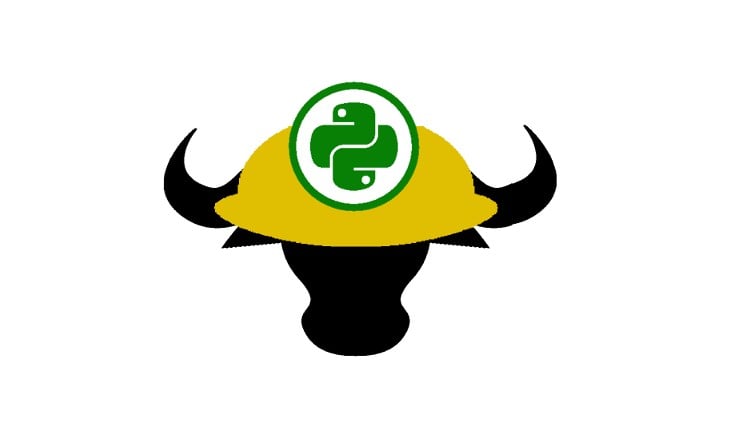
Testing and interacting with free & open operating systems using Python3
⏱️ Length: 4.4 total hours
⭐ 3.96/5 rating
👥 14,167 students
🔄 April 2020 update
Add-On Information:
Note➛ Make sure your 𝐔𝐝𝐞𝐦𝐲 cart has only this course you're going to enroll it now, Remove all other courses from the 𝐔𝐝𝐞𝐦𝐲 cart before Enrolling!
-
Course Overview
- This course meticulously bridges the crucial gap between robust system operations and efficient software development, equipping you with an indispensable skill set for modern IT environments. It’s designed for developers eager to transcend traditional coding boundaries and engage directly with the underlying infrastructure.
- Dive into the synergistic relationship between Python and the Linux ecosystem, understanding how these two powerful forces combine to create highly efficient, scalable, and automated solutions for managing IT infrastructures.
- Explore the foundational principles of contemporary system administration through a developer’s lens, transforming complex, manual operational tasks into elegant, repeatable Python scripts.
- Uncover the strategic advantage of integrating programmatic control with command-line mastery, fostering a more proactive and automated approach to system maintenance, deployment, and comprehensive troubleshooting.
- The curriculum emphasizes practical application, providing a hands-on journey into the art of orchestrating system-level interactions, thereby empowering you to not just write applications but also engineer the resilient environments where they thrive.
-
Requirements / Prerequisites
- Fundamental Python Proficiency: Solid working knowledge of Python 3 syntax, common data structures, and basic scripting logic is essential for the automation techniques presented.
- Basic Command-Line Familiarity: Prior experience with terminal navigation, basic commands, and file system concepts on any OS is highly beneficial, though Linux specifics are covered.
- Access to a Linux Environment: Practical exercises require a Linux-based operating system (VM, WSL, or dedicated install) for hands-on application.
- Conceptual Understanding of Operating Systems: A general grasp of OS components like processes, files, and users aids in comprehending system interactions.
- Eagerness to Automate: A strong desire to optimize workflows and reduce manual operational tasks through scripting will maximize your learning.
-
Skills Covered / Tools Used
- Cross-Platform System Interaction: Develop scripts that intelligently interact with and adapt across diverse POSIX-compliant operating environments (Linux, macOS, Windows via WSL).
- Python-Enhanced Shell Scripting: Leverage Python to extend and orchestrate traditional shell command capabilities, creating sophisticated programmatic solutions.
- Automated Process Management: Programmatically control, monitor, and manage system processes, gaining fine-grained authority over application lifecycles from Python.
- Advanced File System Automation: Automate complex file operations, including synchronization, permissions, and data handling across local and network storage.
- Environment Configuration Management: Script the consistent setup and configuration of development and production environments, ensuring reproducibility.
- System Resource Monitoring & Reporting: Implement Python solutions for tracking performance metrics, generating reports, and automating alert mechanisms.
- Foundations for Remote Orchestration: Acquire preliminary skills to interact with and automate tasks on remote servers, crucial for distributed systems and cloud management.
- Integration with Essential Command-Line Utilities: Programmatically invoke and manage data flow between various command-line tools, constructing efficient and adaptable workflows.
-
Benefits / Outcomes
- Enhanced Operational Efficiency: Drastically reduce manual system administration tasks, saving time and minimizing errors through intelligent, Python-driven automation.
- Accelerated Career Growth: Position yourself as a valuable professional bridging the developer-operations divide, a crucial skill in modern tech.
- Robust System Management: Gain confidence to manage and troubleshoot complex environments, using programmatic tools to efficiently diagnose and resolve issues.
- Portable Automation Solutions: Develop powerful, reusable automation scripts adaptable across various operating systems, maximizing their impact.
- Deeper System Understanding: Cultivate a profound grasp of operating system mechanics at the command-line level, enabling more optimized and resilient infrastructure code.
- Streamlined Development Workflows: Optimize development, testing, and deployment by automating environment configurations and continuous operations.
- Proactive IT Management: Shift from reactive troubleshooting to proactive system management via automated monitoring and self-healing scripts.
- Empowerment through Code: Transform into an architect of IT infrastructure, orchestrating command-line tools with Python’s flexibility and power.
- Foundational for Cloud Automation: Build essential skills directly applicable to cloud automation platforms (AWS, Azure, GCP), where programmatic infrastructure interaction is paramount.
-
PROS
- Highly Practical & Applied: Directly addresses real-world problems with actionable solutions, ensuring immediate applicability of learned concepts.
- Demystifies DevOps: Provides a clear, hands-on pathway into the core practices of DevOps through tangible Python automation examples.
- Cross-Platform Relevance: Teaches skills highly transferable across major operating systems, significantly increasing your versatility.
- Efficient Learning Curve: Delivers high-value content within a concise 4.4-hour format, focusing on key commands and Python integrations.
- Strong Foundational Skills: Lays robust groundwork for advanced system administration, cloud computing, and infrastructure-as-code paradigms.
-
CONS
- Assumes Basic Python Comfort: May pose a challenge for absolute Python beginners, requiring concurrent foundational language study.
Learning Tracks: English,IT & Software,Operating Systems & Servers
Found It Free? Share It Fast!